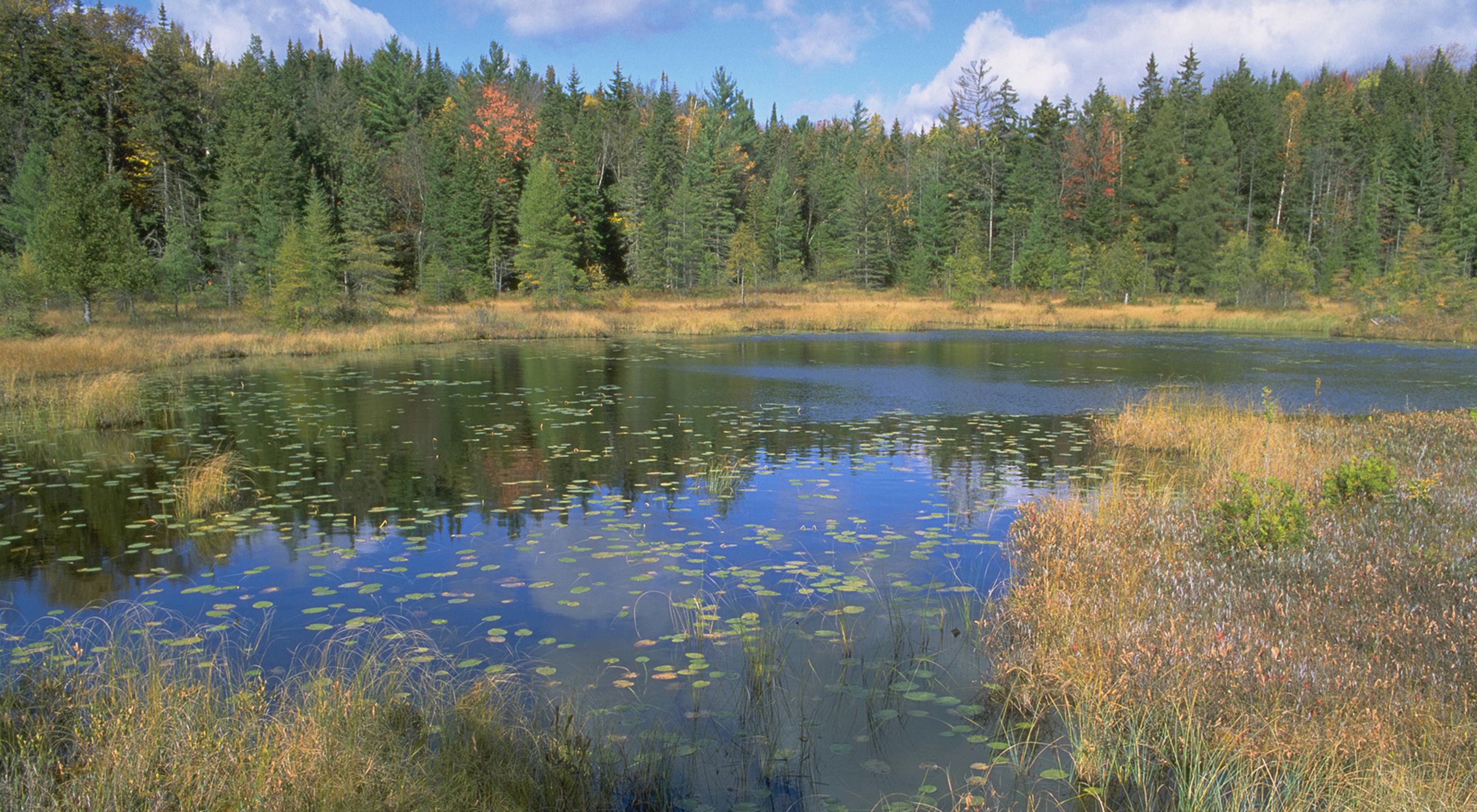Wetlands: Our Unsung Heroes
Often overlooked and undervalued, wetlands bring a multitude of benefits to our communities.
Nature lovers and outdoor enthusiasts can often be found exploring the forest, hiking a new trail, or fishing at their favorite lake or pond. But are wetlands on that list? They should be. Wetlands are teeming with life and are some of the most valuable natural communities across our globe, but they are often not perceived as such.
When most people think of wetlands—if they think of them at all—they think of mushy mosquito-breeding swamps that serve no purpose except to occupy valuable space, resulting in their significant diminishment from our landscape. In Vermont alone, we’ve lost approximately 35% of our wetlands in the past 200 years. That loss has directly impacted our water quality, wildlife habitat and flood resiliency.
Wetlands are a Recreation Destination
As some of our most important working lands, wetlands are incredible places to explore in all seasons. Paddlers float across the flooded swamps in the spring, and skiers enjoy zipping across the frozen landscape in the winter. From the marshes that provide habitat for our iconic moose, to the bogs full of peepers that create our summer soundscapes, wetlands are integral to Vermont’s natural legacy.
In fact, Vermont is home to the largest and most biodiverse freshwater wetland complex in New England—the Otter Creek Wetland. Stretching 15 miles across Addison and Rutland counties, its 14 natural communities of bogs, fens, marshes and swamps, support over 32 rare and uncommon plants and animals such as the American hazelnut, bald eagles, and ospreys, which attract a variety of visitors who fish and recreate along the winding creek.

Wetlands Benefit People
Aside from the rich collection of natural wonders and recreational opportunities that wetlands provide, they also create safer and healthier communities in the form of flood resiliency. Dense plant communities improve water quality by filtering toxic substances and soaking up nutrient-rich storm waters.
A 2016 study conducted by the University of Vermont found that the monetary value of flood mitigation services provided by the Otter Creek Wetland is between $126,000 and $450,000 each year. During extreme weather events, which are only becoming more frequent in the face of climate change, this value increases exponentially—it’s estimated that the wetlands saved the town of Middlebury up to $1.8 million during 2011’s Tropical Storm Irene. Furthermore, a recent research study by TNC and the Gund Institute for the Environment found that Vermont can achieve 15% of its phosphorous reduction goals in Lake Champlain by restoring degraded wetlands, proving again and again how hard our wetlands work for us.
Be a Wetland Warrior
In the same way that we love our forests, mountains and lakes, we must love and steward our wetlands and the multitude of gifts they provide. And just as we need our trail advocates, forest guardians and water keepers, we need our wetland warriors! Not only can we no longer accept further net loss of this incredible and dynamic resource, but we need to work towards increasing the footprint of wetlands through further conservation and restoration—our lives, our communities and our planet will be better for it.
